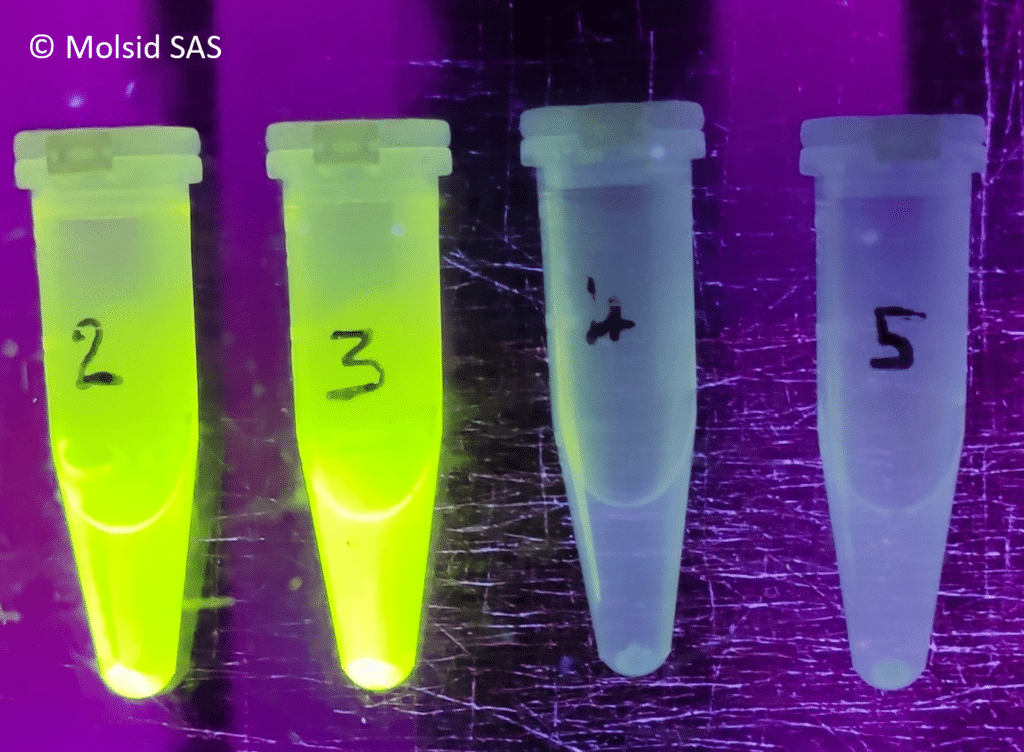Newsletter Signup - Under Article / In Page
"*" indicates required fields
Start-up biomed Molsid is developing the first rapid test to detect the potential presence of antimicrobial resistance (AMR) directly in primary clinical samples.
ORSET Group and PULSALYS, the SATT in Lyon, extended financing to the company in March 2023. This was followed by the signing of an i-DEMO contract with the French investment bank bpiFrance. The grant consists of a subsidy and a loan for a total of €1.67 million ($1.74 million) in aid.
Bacterial resistance to antibiotics will cause more than 10 million deaths each year by 2050, according to warnings issued by the World Health Organization and the United Nations.
Molsid, a spin-off from the University of Lyon – ENS created in 2018, is developing a test kit and corresponding IVD medical device, termed “Pythia,” which allows for rapid AMR diagnostics. The company said this will be a game-changing tool in the prevention of multi-drug resistance to antibiotics and will help save many lives among patients with AMR in the event of nosocomial outbreaks or severe infections.
Results in less than two hours with Molsid’s rapid test
Pythia delivers its result in less than two hours while taking five minutes of operating time by hospital staff. Molsid said it can determine the AMR status of incoming patients quickly.
“We are very happy to enter the capital of Molsid alongside Pulsalys. These additional resources, together with those of the BPI aid, will allow us to provide clinicians rapidly with an essential tool for the fight against infections usable directly at the bedside of patients,” said Laurent-Olivier Orset, president of the Orset Group and CEO of Molsid.
The core technology of the Pythia test consists of fluorogenic molecular probes developed and patented by Molsid. These molecules probe the potential presence of an enzyme activity of interest by generating a fluorescent signal in the biological sample. This generates a fluorescent precipitate rather than a soluble fluorescent signal. This allows for the design of novel test protocols leading to high detection sensitivity and thus the ability to drastically shorten testing times.
The Pythia test detects enzyme activities exercised by members of the beta-lactamase and carbapenemase classes. These are biomarkers for bacterial resistance to last-resort antibiotics.
Pythia is simple to use, its hardware (the medical device) takes up little bench space, and its delivery of encrypted results will allow integration into the hospital and laboratory information systems. Pythia will be able to analyze primary clinical samples such as urine, respiratory specimens (sputum, endotracheal aspirates, bronchoalveolar lavages BAL), nasal swabs, and rectal swabs.
In May 2022, Pythia was tested in the laboratory of professors Nordmann and Poirel at the university hospitals of Fribourg in Switzerland who are AMR experts and EUCAST members.
Further preclinical and clinical testing is scheduled for this year and 2024, with the aim to obtain clinical validation within 12 months and an initial certification (CE or FDA) in less than 18 months. Pythia could enter the market in 2025.
Last year, Chris Lock, vice president of R&D at the mass spectrometry specialist SCIEX, spoke to Labiotech about how rapid diagnostics can help doctors wield antimicrobial treatments more effectively.






